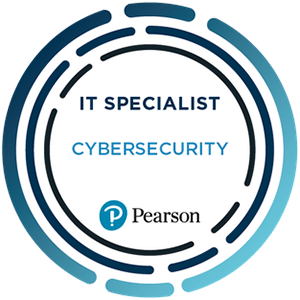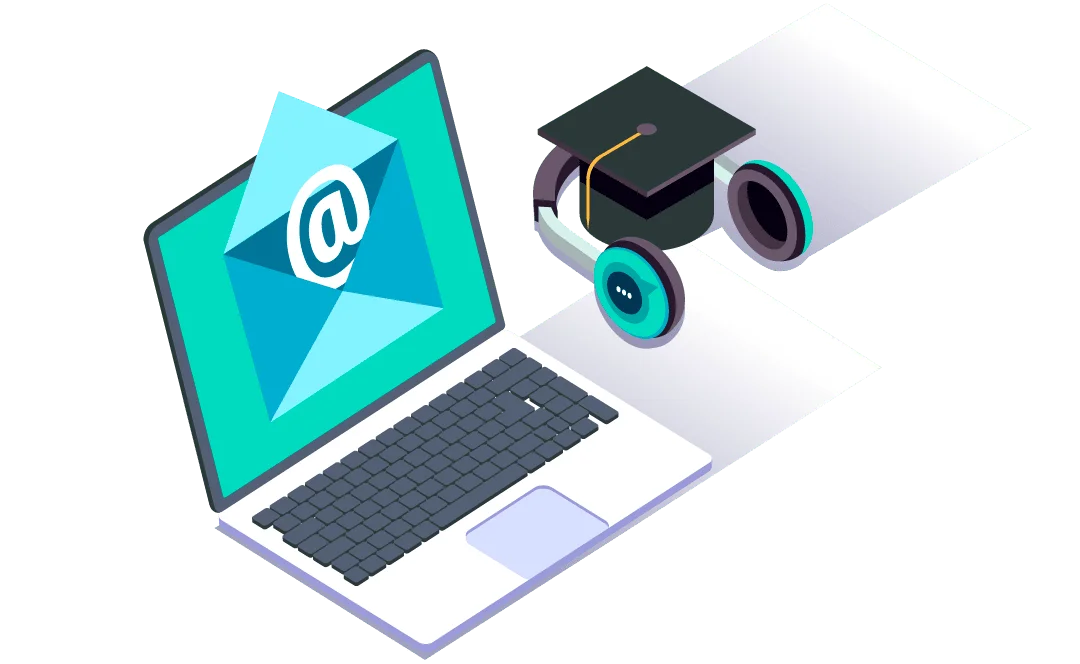Live online classes
20 weeks (200 hours) | 4 live classes per week
We prepare you for certification



 Learning paths
Learning pathsPresentation of the curriculum, work tools, and how the programme and group operate.
Free access to further training
Our cybersecurity programmes are conducted in collaboration with Santander
Learn how to use industry-leading tools
In this module we will learn how to program in Python language. Python is a very popular and powerful programming language. It is used to do many different things, such as creating web applications, analysing data, creating artificial intelligence programs and even controlling robots. It is a very easy language to learn and has a clear and simple syntax, which means it is easy to read and write. We will learn the different fundamentals of Python such as control structures, lists, dictionaries or functions, so that at the end of the module we will have the basis to safely continue the rest of the bootcamp.
You will learn what information security, IT security and cybersecurity are and how to differentiate between them. You will also learn the basic concepts and principles of auditing.
You will learn the basic techniques for conducting attacks on different targets with technical approaches that will be adapted to the needs of each scenario. You begin by learning the techniques of target analysis, creating profiles to make decisions about the attack. In addition, you will assess the state of the target's infrastructures and systems. You will identify insecure configurations, vulnerabilities, etc.
You will learn advanced pentesting techniques, applied once you have gained access to the target systems, to try to detect more advanced vulnerabilities. In addition, you will learn different exploit techniques that will take advantage of existing vulnerabilities in the system by gaining access to confidential information, executing code on the attacked system or causing denial of service situations.
An asynchronous module in which time will be provided to prepare for and take the certification exams included in the program. IMMUNE, in this case, acts as a facilitator in connecting the certifying entity and the student, easing the process but without having authority over the exam or the grades obtained by the students.
Presentation of the final project before a panel of experts.

 Career opportunities
Career opportunitiesCloud Systems Administrator | DevOps Engineer | Cloud Architect | Automation Engineer | Cloud Computing and DevOps Consultant | Cloud Support Engineer | Cloud Engineer
CertificationsWith this programme you will acquire the necessary skills to work in a professional environment. In order for you to be able to demonstrate this, IMMUNE prepares you to be certified in:




In the Cybersecurity Bootcamp you will develop competencies and professional skills that will allow you to specialise in this sector in order to form part of a professional team of auditors, pentesters, forensic experts. You will learn through real cases in a specialised training platform to identify vulnerabilities, learn about malware, forensic analysis, cyberintelligence and much more.
The opportunities vary depending on your profile and experience, among others, you will be prepared to become:
The comprehensive training we deliver to our students thoroughly prepares them for the employment market. Through a personalized syllabus, we help them develop professional skills, establish relationships with companies and sail through recruitment processes.
In all our content, we include a percentage of Human Sciences to connect technology with soft skills.
It focuses on the practical application of knowledge and skills to foster meaningful and lasting learning.


Do you have a cybersecurity-related project that you would like to develop? Have you identified a cybersecurity need? Do you need funding to launch your company? IMMUNE, in collaboration with INCIBE, is developing the CYBERTALENT program, a three-year plan to promote cybersecurity entrepreneurship in Spain.



This questionnaire will allow us to get to know your profile in depth and ensure that this course is perfectly suited to your level of knowledge and expectations, guaranteeing that you get the most out of our program.
The test is completely online, requires no prior preparation, and will take no more than 25 minutes.

If you pay in one instalment you will receive a 15% discount.
Pay in installments, even if you are unemployed and cannot guarantee the loan.
Pay in installments, even if you are unemployed and cannot guarantee the loan.
Pay for your training through the Spanish Employment Training Foundation. Aimed at active workers who wish to finance their program through the subsidized training program.
Don't pay until you find a job in instalments adapted to your salary. Aimed at people with Spanish nationality or residence permit in Spain.
Once you complete and pass the programme you will receive a diploma issued by IMMUNE Technology Institute in a digital format verifiable through blockchain technology.
Do you want to level up?
Do you want to stay in your field or sector, but you want to continue learning and explore new challenges? It's time to give your professional profile a boost and align it with the latest trends in technology.
Are you finishing your degree, and you want an upgrade in technology?
We love your profile, because you dare to dream. And in the professional world, fortune favors the bold. If you are an entrepreneur or freelancer, this program will help take your professional projects to the next level.
Want to change your professional career?
If you want your career to take a new direction and enter the world of tech with a bang, the program will help you specialize and shape your professional profile.
Are you an entrepreneur or freelancer?
This program will put you in the spotlight, as technology is the engine of innovation and the key to staying competitive in a constantly evolving market.
It is not necessary to demonstrate any prior training for admission, only to go through the admission process consisting of an evaluation of your resume and a personal interview with our admissions team.
The tools used throughout the program are licensed for free use, in some cases because we use educational licenses and in others because it is free software.
We have an employability area which, through our Talent Hub program, is responsible for supporting the efforts of our students to enter the employment market. The services we offer include resources to help you search for and prepare for interviews, English tests, resume and/or Linkedin profile guidance, interview and elevator pitch training, and access to our exclusive internship and employment pool.
You will need to have access to a laptop with a camera, microphone and minimum requirements of 8 GB of RAM and an i5 processor.
The final project is where everything you have learned throughout the program is applied and consolidated. You will present the project to a panel of professionals from companies in the sector, which represents a unique opportunity for students to demonstrate their knowledge to potential employers and also to network.
Yes, the program is delivered online with live classes. As such, you will be in direct contact and under the supervision of the teachers, which will enable you to follow the classes and interact in a flexible and natural way.
Yes, there are scholarships or study grants as well as financing options depending on students’ circumstances. Check out our scholarship and financing options.
Our students are characterized by their passion for technology. Our admissions process focuses on who you are, how you think, what you have accomplished, and then sharing your goals.
Our aim is to get to know you better, see what makes you unique and ensure that the IMMUNE educational model adapts to your profile.

1. Application

3. Academic committee

4. Enrollment

2. Personal interview
Designed to replicate an ecosystem of start-ups and tech companies, we’ve created a slice of Silicon Valley in the heart of Madrid.